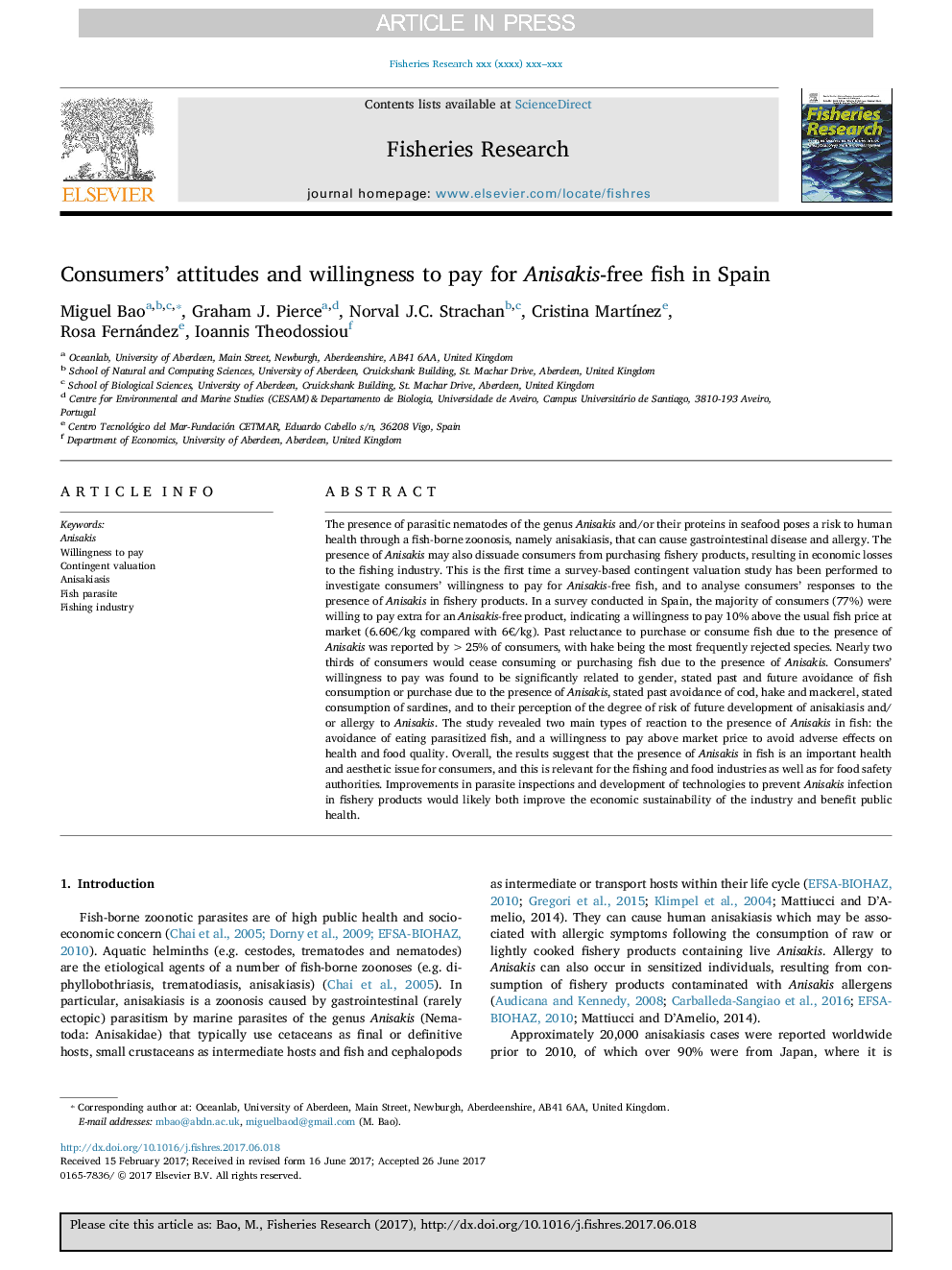ترجمه فارسی عنوان مقاله
نگرش مصرف کنندگان و تمایل به پرداخت ماهی بدون ماهی انیساکی در اسپانیا
عنوان انگلیسی
Consumers attitudes and willingness to pay for Anisakis-free fish in Spain
| کد مقاله | سال انتشار | تعداد صفحات مقاله انگلیسی |
|---|---|---|
| 158528 | 2018 | 12 صفحه PDF |
منبع

Publisher : Elsevier - Science Direct (الزویر - ساینس دایرکت)
Journal : Fisheries Research, Volume 202, June 2018, Pages 149-160

